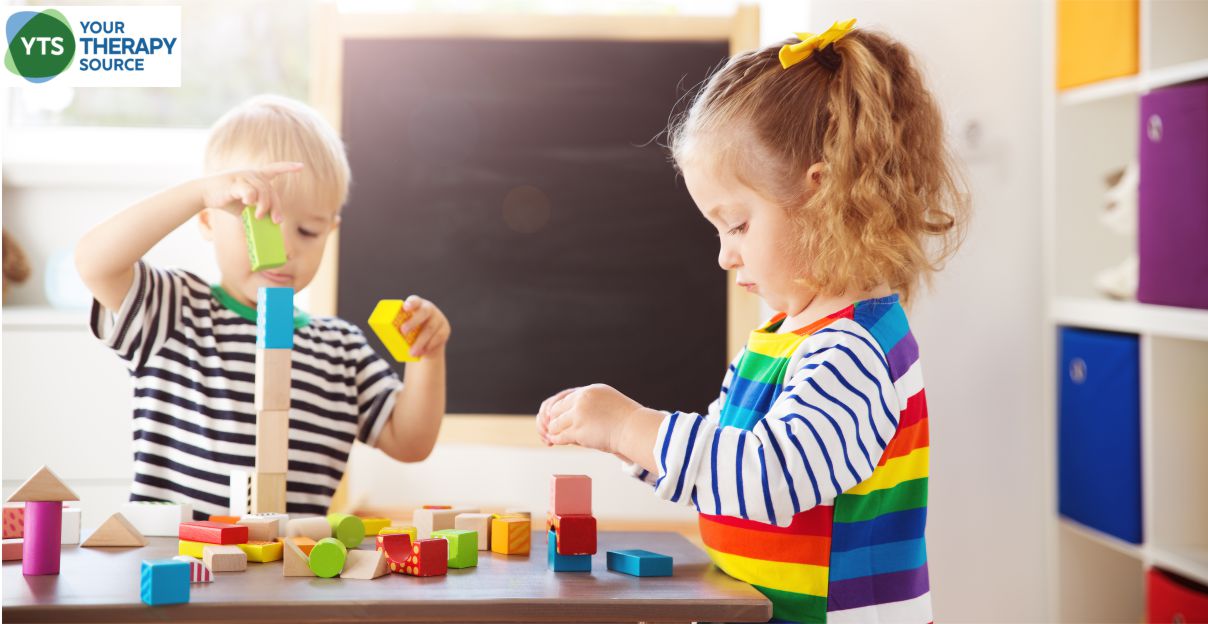Visual Spatial Processing Predicts Math and Reading Skills

Visual spatial processing skills that involve fine motor skills and integrating motor information are very important to develop during the early childhood years. Previous research tells us that early fine motor skills are significantly associated with later achievement. Current research wanted to answer the question how early visual spatial processing skills and fine motor coordination skills predict later school performance.
Methodology
The researchers assessed fine motor skills in 34,491 low income, ethnically diverse preschoolers. The evaluations measured two different types of fine motor skills: those that integrated motor information with visual spatial information and those that relied mainly on coordination skills.
The children’s school performance was then later assessed in third, fourth, and fifth grades.
Results of the Study on Visual Spatial Processing and Later School Performance
After data analysis, the results indicated the following:
- stronger visual spatial intelligence skills in preschool were associated with significantly better outcomes for children’s standardized math and reading test scores in third, fourth, and fifth grades even after controlling for gender, socioeconomic status, and preschool cognitive, language, and social-emotional skills.
- fine motor coordination was associated with significantly better math outcomes across all three grade levels but was not associated with better reading performance.
The researchers concluded that visual spatial processing skills are a good predictor of later school achievement in reading and math and fine motor coordination skills were associated with better math skills.
Reference: Greenburg, J. E., Carlson, A. G., Kim, H., Curby, T. W., & Winsler, A. (2020). Early Visual-Spatial Integration Skills Predict Elementary School Achievement Among Low-Income, Ethnically Diverse Children. Early Education and Development, 31(2), 234-252.
More Information on Visual Spatial Intelligence
HOW DO VISUAL-SPATIAL SKILLS INFLUENCE MATH SKILLS?
FOSTERING VISUAL SPATIAL INTELLIGENCE IN CHILDREN THROUGH LANGUAGE
IS THERE A LOSS OF SPATIAL AWARENESS IN CHILDREN?
15 FREE VISUAL SPATIAL PRINTABLES
COORDINATION, VISUAL SPATIAL SKILLS AND HANDWRITING
Visual Spatial Processing Activities for Early Childhood
COLORED CAPS FINE MOTOR AND VISUAL SPATIAL ACTIVITY
COPY THE CATERPILLAR VISUAL SPATIAL AND VISUAL MOTOR ACTIVITY FREEBIE
5 WAYS TO DEVELOP SPATIAL AWARENESS

Mosaic Patterns
Practice copying different patterns using various sizes and techniques to encourage different fine motor and visual perceptual skills. Also included is 7 different activity ideas to encourage different fine motor skills. This is a great activity for push in therapy ideas, centers, therapy sessions or to send home with students.
Mosaic Patterns encourage: visual spatial processing, visual motor skills, fine motor skills and visual tracking. FIND OUT MORE.



